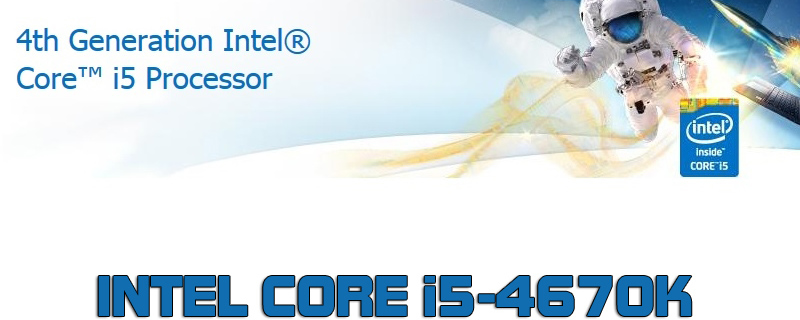Intel 4670K i5 Haswell Review & Overclocking
Introduction
Like the rest of you we very much enjoy seeing what is possible from the top end hardware. There are few things more exciting than comparing a beastly piece of hardware to the previous market leader and seeing what would be achievable with a lottery win or the death of a wealthy uncle.
We are, however, equally aware that the majority of users haven’t got the finances to run a system with a i7-4770K in it. Most of us don’t even require the computational power it can provide. You only have to look at the popularity of the 2nd Generation Intel Sandy Bridge Core i5-2500K to know that a high-clocking, affordable CPU can sell by the container load. We hardly know anyone who hasn’t had one of these processors at the heart of their system at one time or another.Â
With the release of Haswell and the 4th Generation of Intel CPU’s we have, rightly, kept our focus on the range topping i7-4770K CPU in our early tests, but the performance of the Aria pre-overclocked bundles which were based around the Core i5-4670K, piqued our interest and we had to find our for ourselves if this really was the LGA1150 equivalent to the monster-selling i5-2500K.
Technical Specifications
As always with a processor the specifications are largely of interest to developers rather than the average user who just cares about how many clocks and at what speed they run. The i5-4670K is a pure quad-core, with no hyper-threading, based on a 22nm process with a low TDP of 84W and the latest Intel instruction sets.
| Status | Launched |
| Launch Date | Q2’13 |
| Processor Number | i5-4670K |
| # of Cores | 4 |
| # of Threads | 4 |
| Clock Speed | 3.4 GHz |
| Max Turbo Frequency | 3.8 GHz |
| Cache | 6 MB |
| # of QPI Links | 0 |
| Instruction Set | 64-bit |
| Instruction Set Extensions | SSE 4.1/4.2, AVX 2.0 |
| Embedded Options Available | No |
| Lithography | 22 nm |
| Max TDP | 84 W |
Â
| Intel® Turbo Boost Technology | 2.0 |
| Intel® vPro Technology | No |
| Intel® Virtualization Technology (VT-x) | Yes |
| Intel® Virtualization Technology for Directed I/O (VT-d) | No |
| Intel® VT-x with Extended Page Tables (EPT) | Yes |
| AES New Instructions | Yes |
| Intel® TSX-NI | No |
| Intel® 64 | Yes |
| Intel® Anti-Theft Technology | Yes |
| Idle States | Yes |
| Enhanced Intel SpeedStep® Technology | Yes |
| Thermal Monitoring Technologies | Yes |
| Execute Disable Bit | Yes |
| Intel® Secure Key | Yes |
| Intel® Identity Protection Technology | Yes |
 Â



